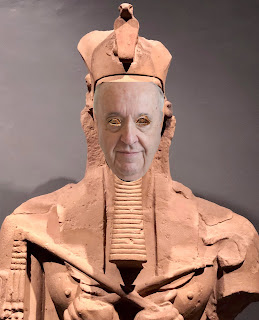A "Centering Prayer" group, encrusted with Boomers as to be expected
We live in a world which rejects Catholic tradition while simultaneously professing great interest in spiritualities influenced by the New Age. Christians have been traditionally reluctant to embrace such practices, as they contain elements that are fundamentally opposed to the most basic tenets of Christianity. Some, however, have merged various elements of eastern mysticism and New Age neo-paganism with traditional Catholic spirituality, thrown in some Christian vocabulary and are now peddling these practices as compatible with Catholicism. For example, the method of "Centering Prayer" promoted by the late Cistercian monk Basil Pennington is a good example, but there are others. These practices are promoted as Christian forms of "contemplation", and Catholics are encouraged to participate. In this article we will look at how to discern whether a spiritual practice is authentically Catholic or just New Age esoteric mysticism in a Christian veneer. We will use the 'Centering Prayer' spirituality developed by Fr. Thomas Keating and Basil Pennington as an example, but what we will say can be applied to any questionable spirituality.




